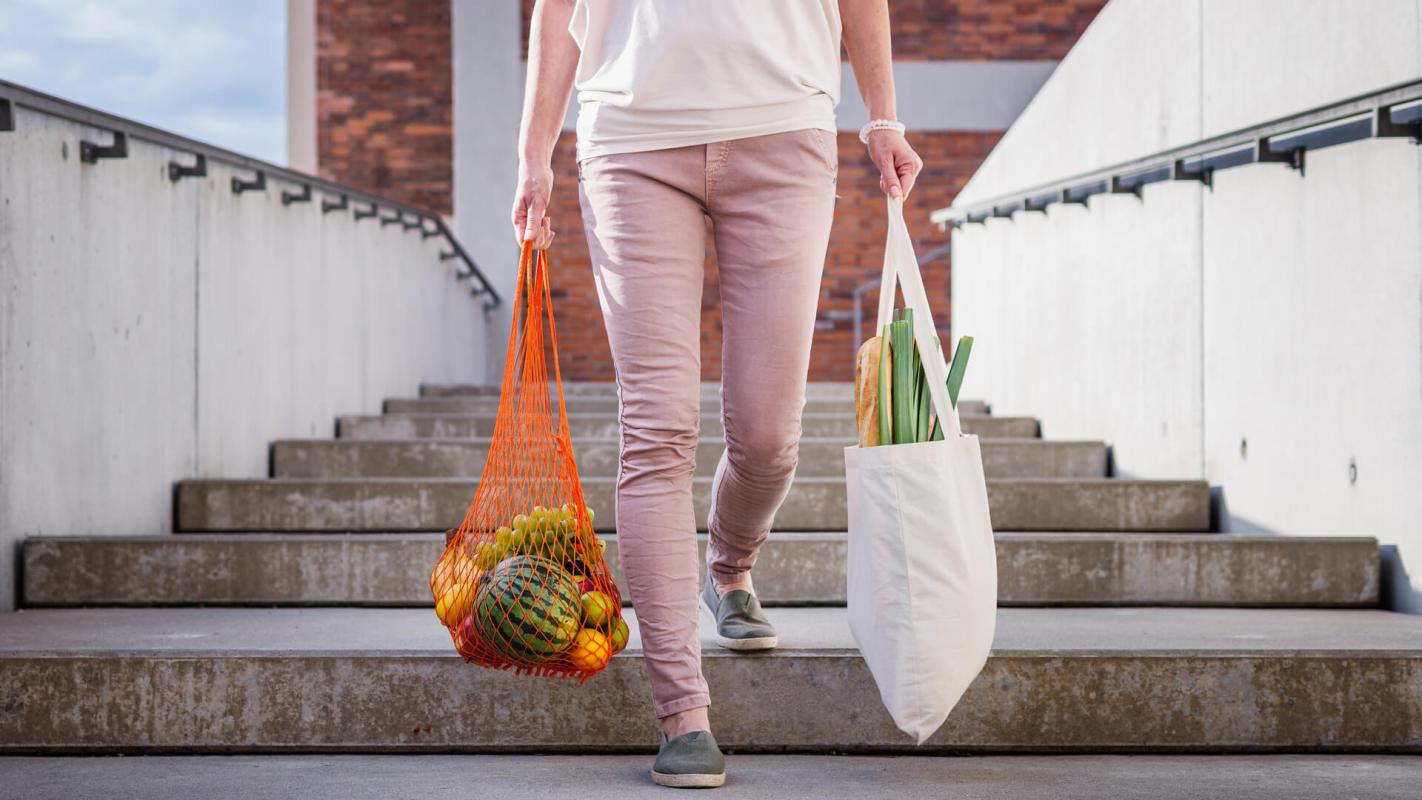There's no instruction manual for New Year's resolutions. The range of possibilities is unlimited — anything is fair game, from "bicycle across the country" to "buy one less $7 latte a week."
As literally every self-help book will tell you, the key to success is picking tangible, actionable goals. But how do you decide how big that goal should be?
We're hoping to do some of that work for you. For those of us who are among the roughly 77% of Americans and Australians looking to live more sustainably, it's likely that some of our resolutions will be centered around a more eco-friendly lifestyle.
This list is full of ideas for a cleaner, greener 2023. But, more importantly, it's full of ranked ideas — with each resolution listed from simplest to most challenging. The first level is for changes you could make on day one, while the final level may take a few months to achieve.
Level 1: Pretty Simple
Unplug your energy vampires
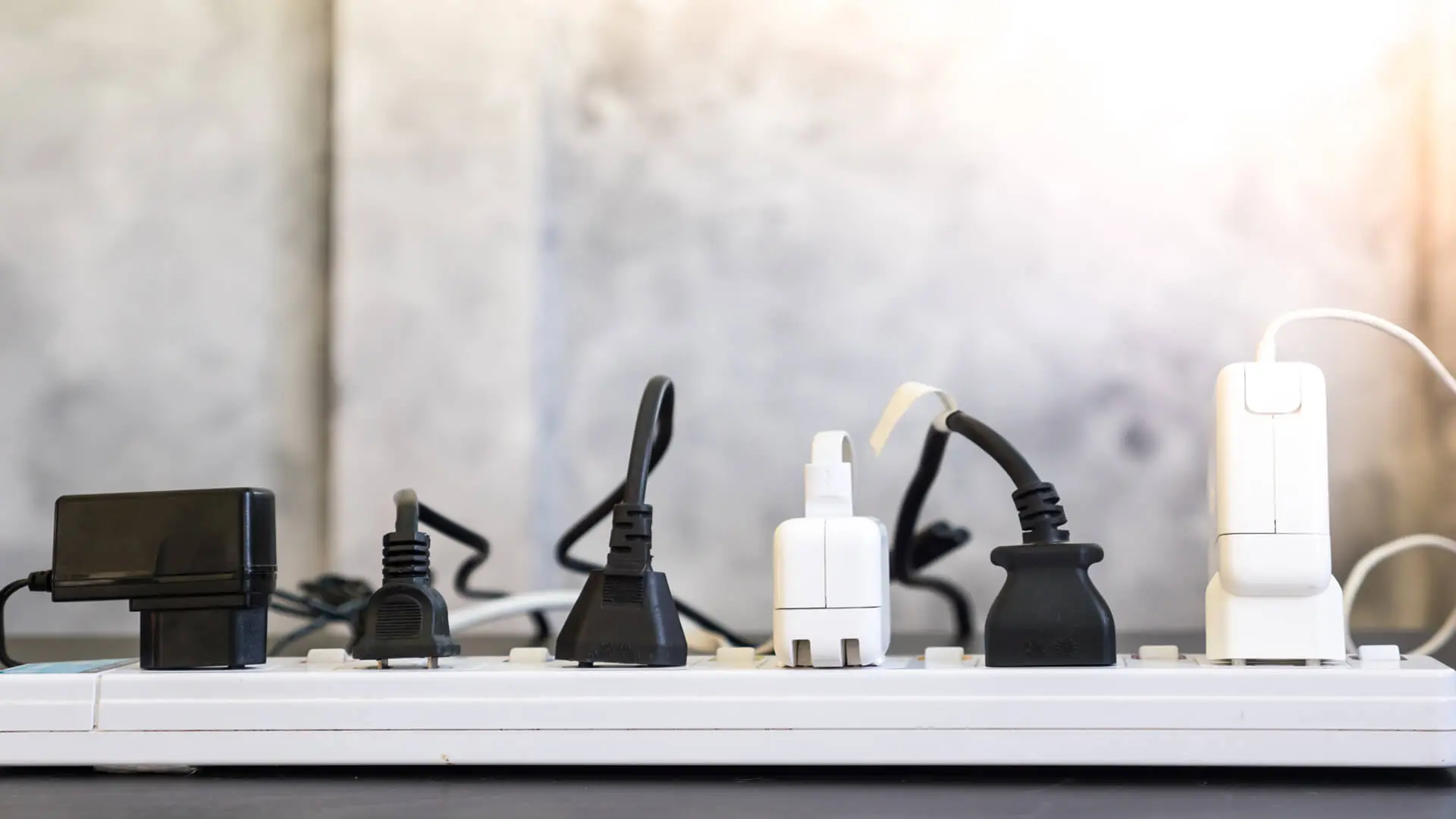
Unplugging microwaves, game consoles, and other "vampires" takes only a few seconds each night. And it'll save you big money on your energy bill.
Enjoy one "plant-forward" meal a week

Trying a new, plant-based recipe is a fun way to expand your horizons. If this gets too easy, then try it two nights a week, then three.
Clean a little more sustainably
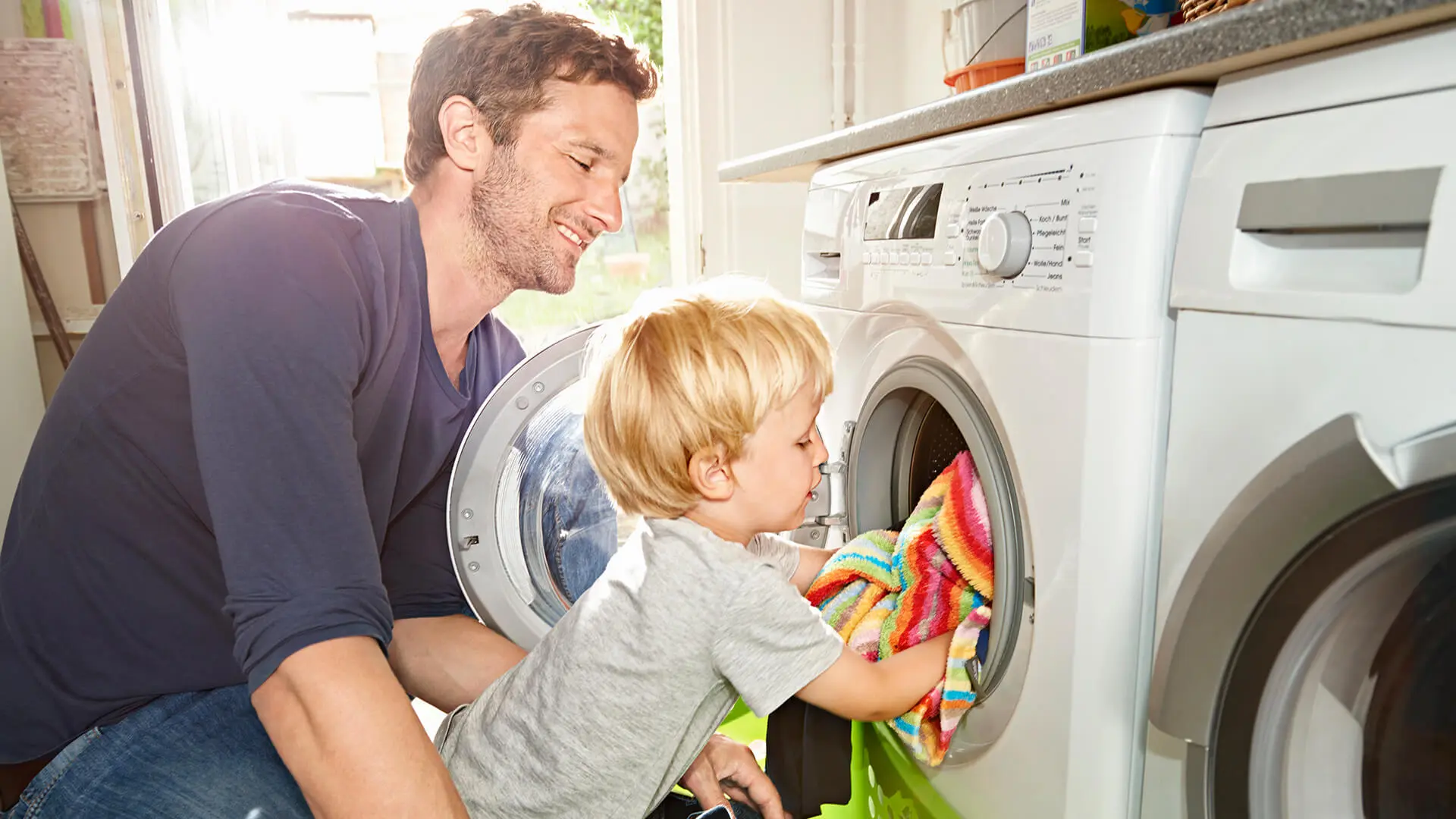
Next time you run out of cleaning supplies, swap them with a greener alternative. These plastic-free dishwasher pods are a great place to start.
Ditch plastic bags

Only about 5% of plastic gets recycled, so switching to reusable bags can keep incredible amounts of trash out of our landfills. That said, if you're already sitting on a pile of leftover plastic bags, it's better to reuse them until they break before buying a new, reusable bag.
Cut down on food waste
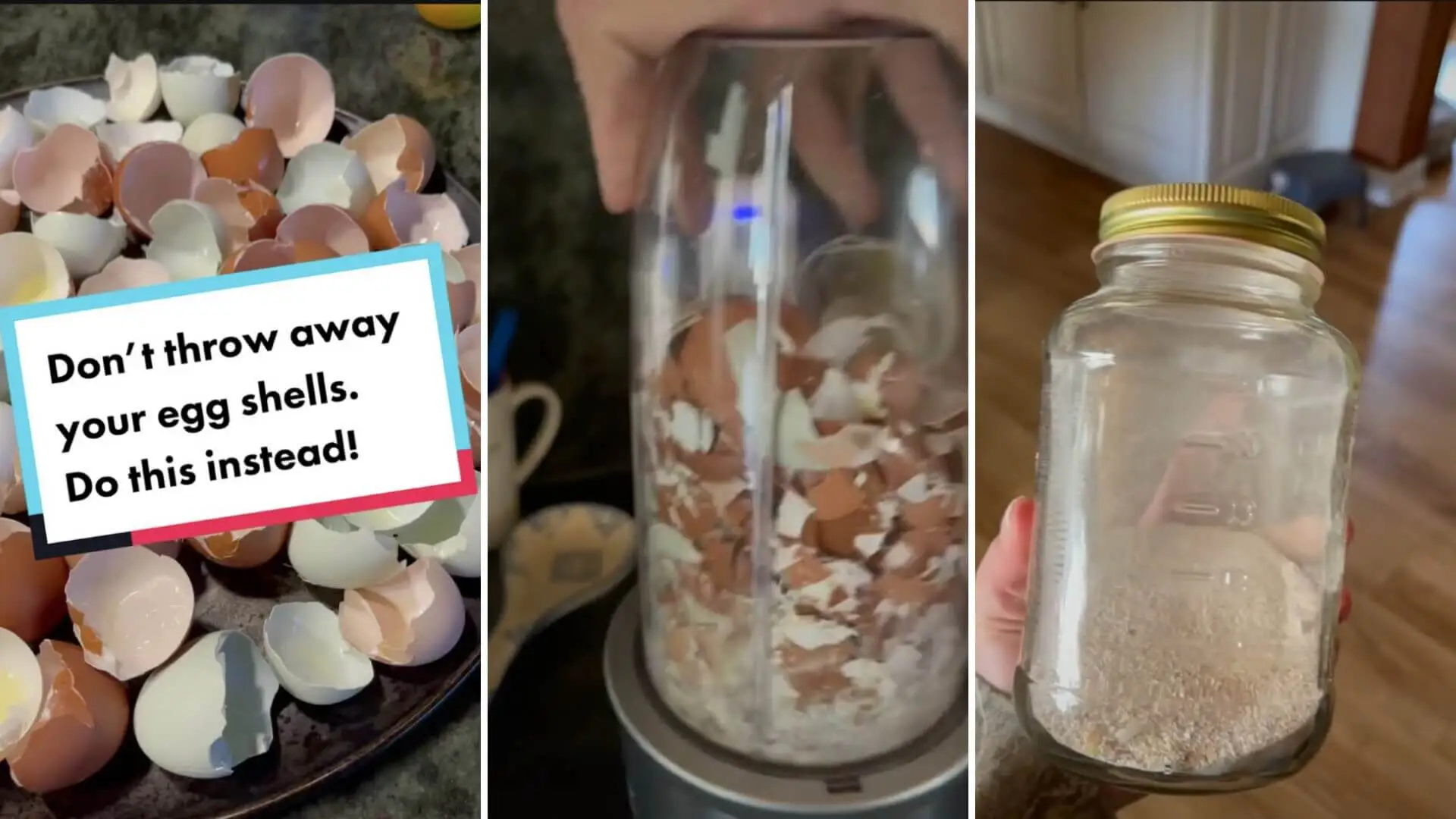
There are a million and one ways to do this, from freezing veggie scraps to make soup stock to using eggshells in your garden and everything in between.
Level 2: Definitely Doable
Compost your kitchen scraps
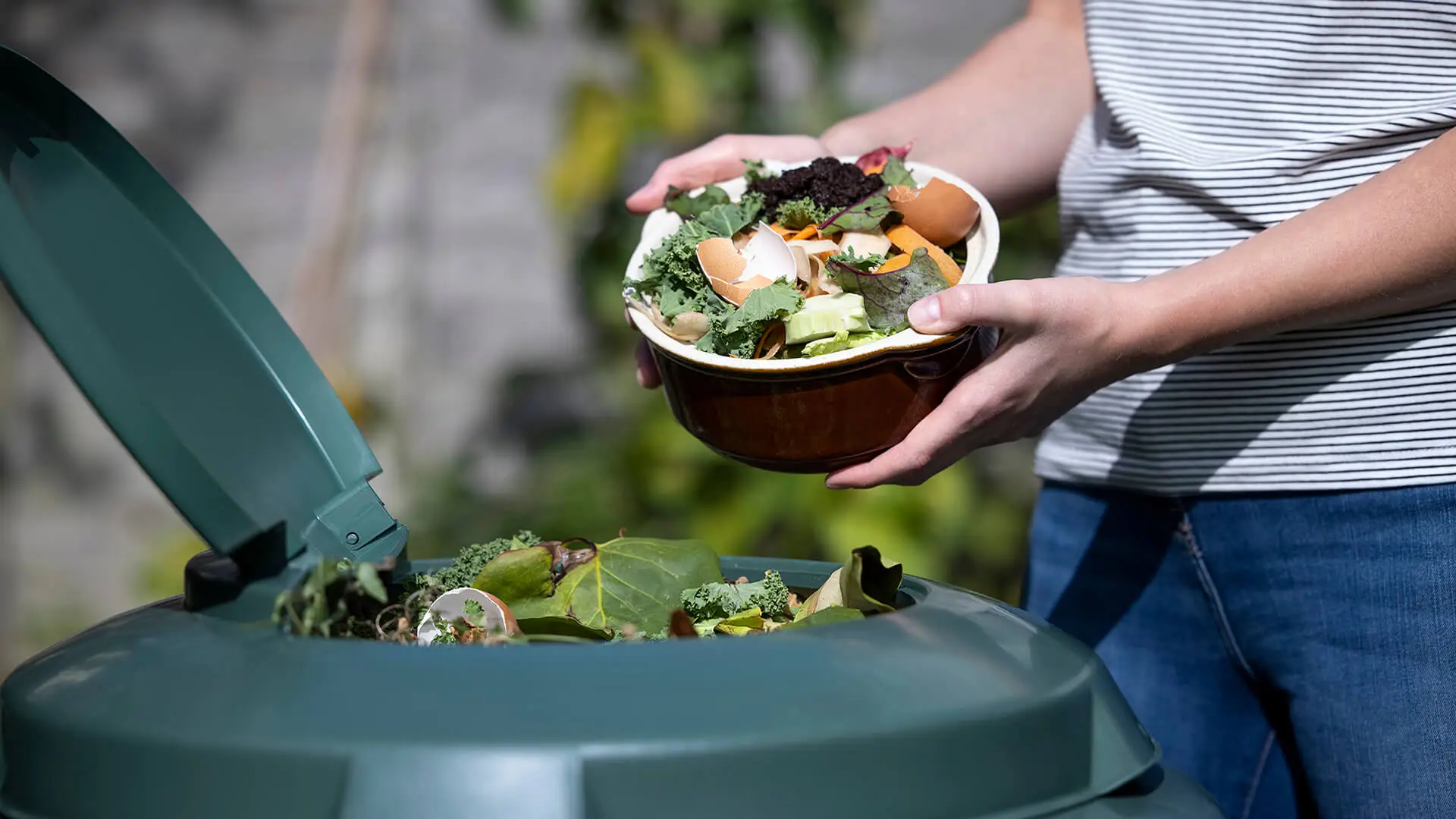
Learning to compost is easier than it looks, whether you have space for a backyard unit or just a cute, countertop-ready bin.
Start a garden
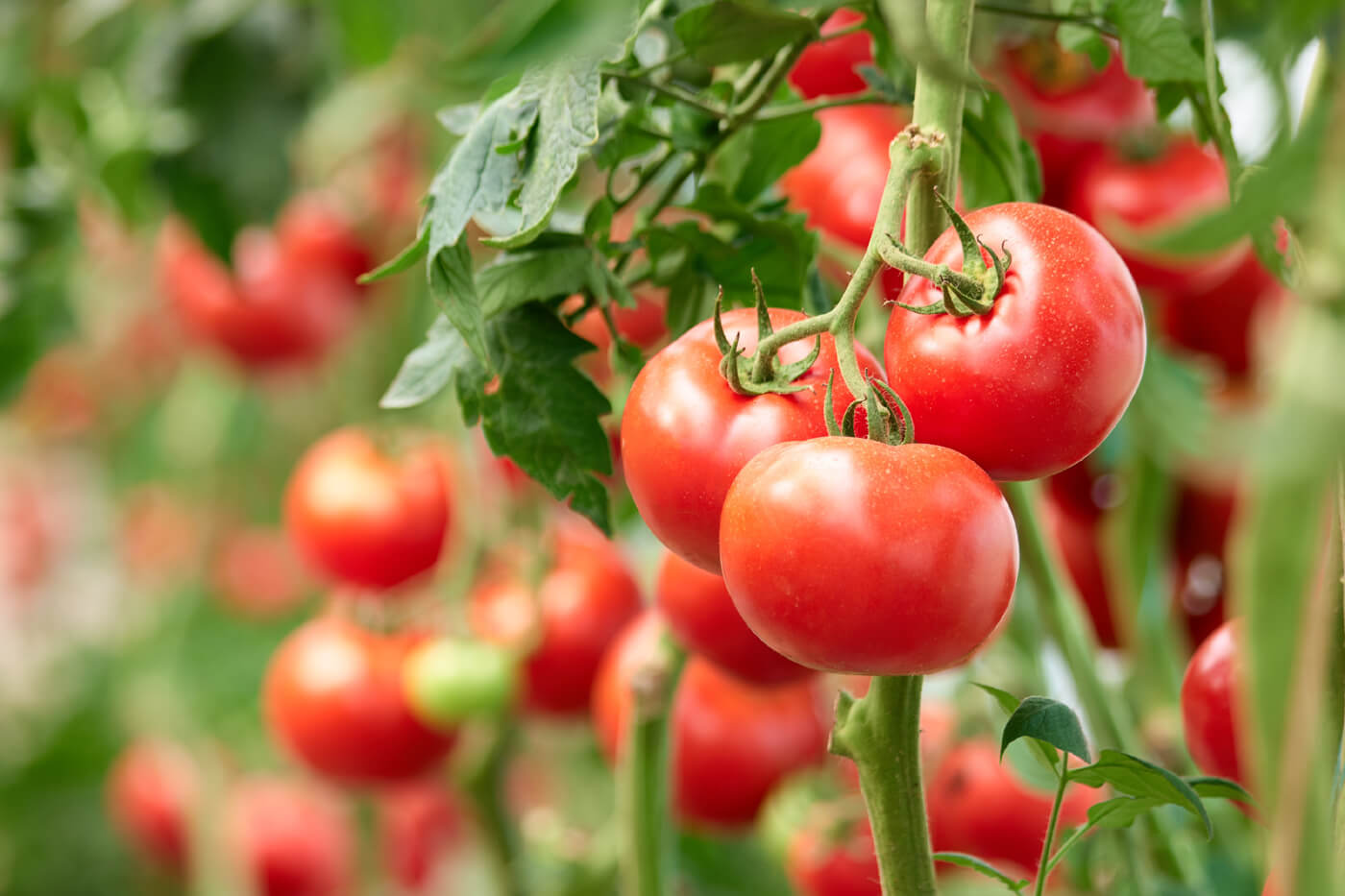
Planting your own herbs and veggies will lessen your reliance on major grocery stores — even if it's just a few springs of windowsill basil.
Do a "circular cleanout"
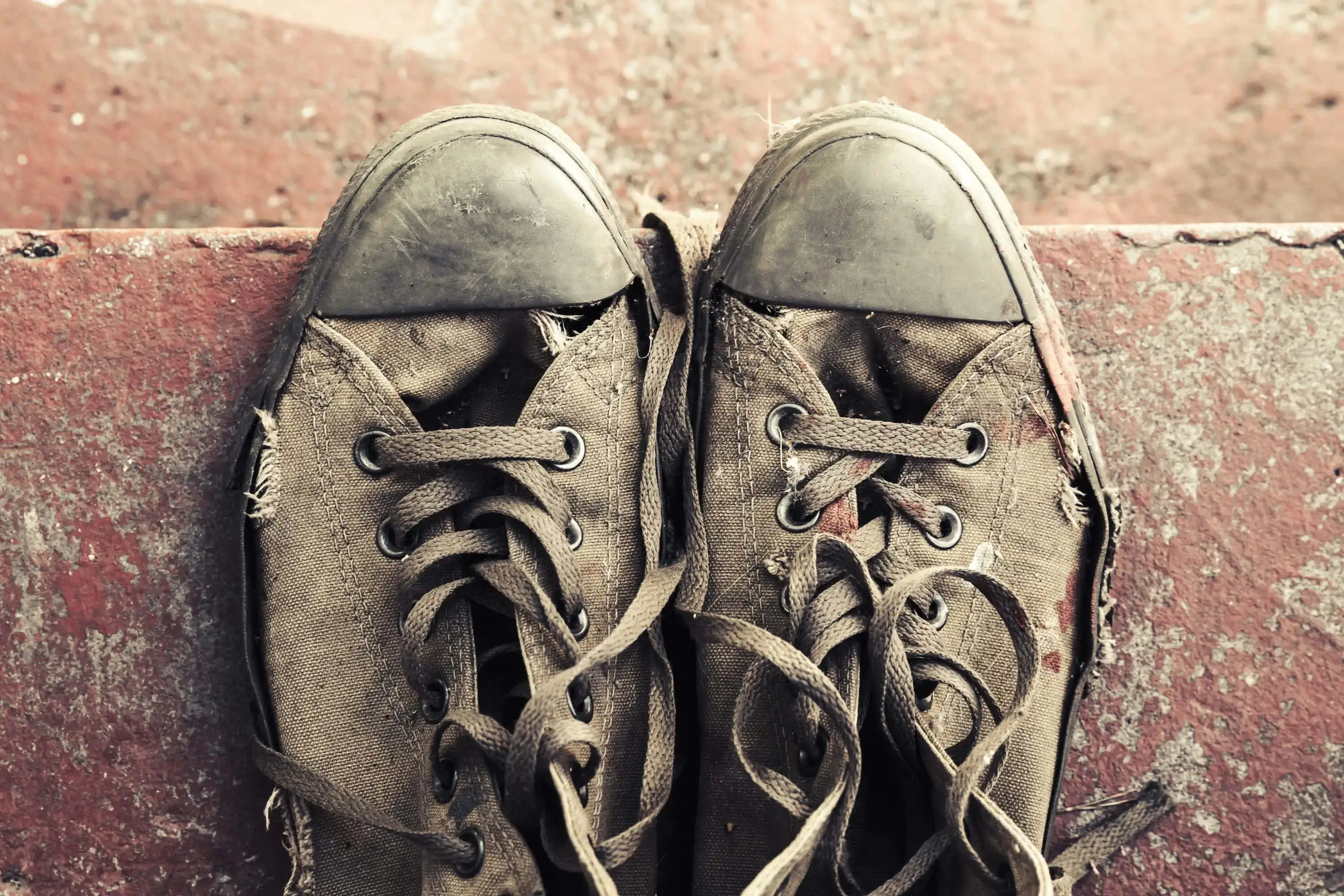
Instead of throwing away your unwanted items so they can rot in a landfill, you can use one of the countless services that pay you straight-up cash for your used clothing, underwear, socks, and sneakers.
Shop local

Commit to sourcing a majority of your produce and meat from local farmers and neighborhood grocery stores. You can cut down on the pollution created during transportation and packaging all while supporting small businesses.
Spend less time behind the wheel
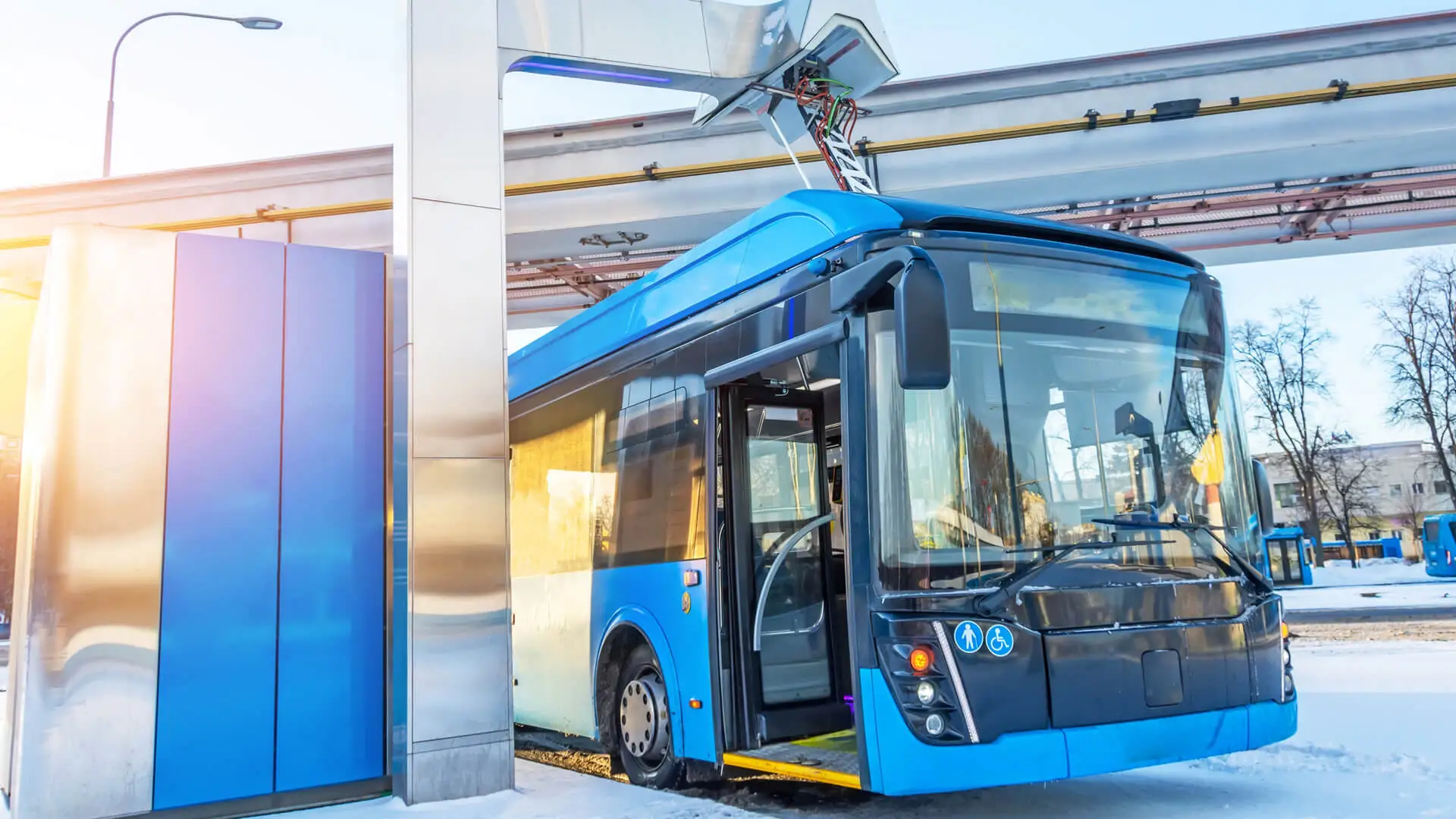
Even if it's just a few trips per week, using public transit and local bike paths could seriously cut down your overall carbon pollution (especially as more and more buses go electric).
Level 3: Worth The Effort
Go "60/40"

Try getting 60% of your new wardrobe items from thrift stores and just 40% from retailers.
Commit to solar
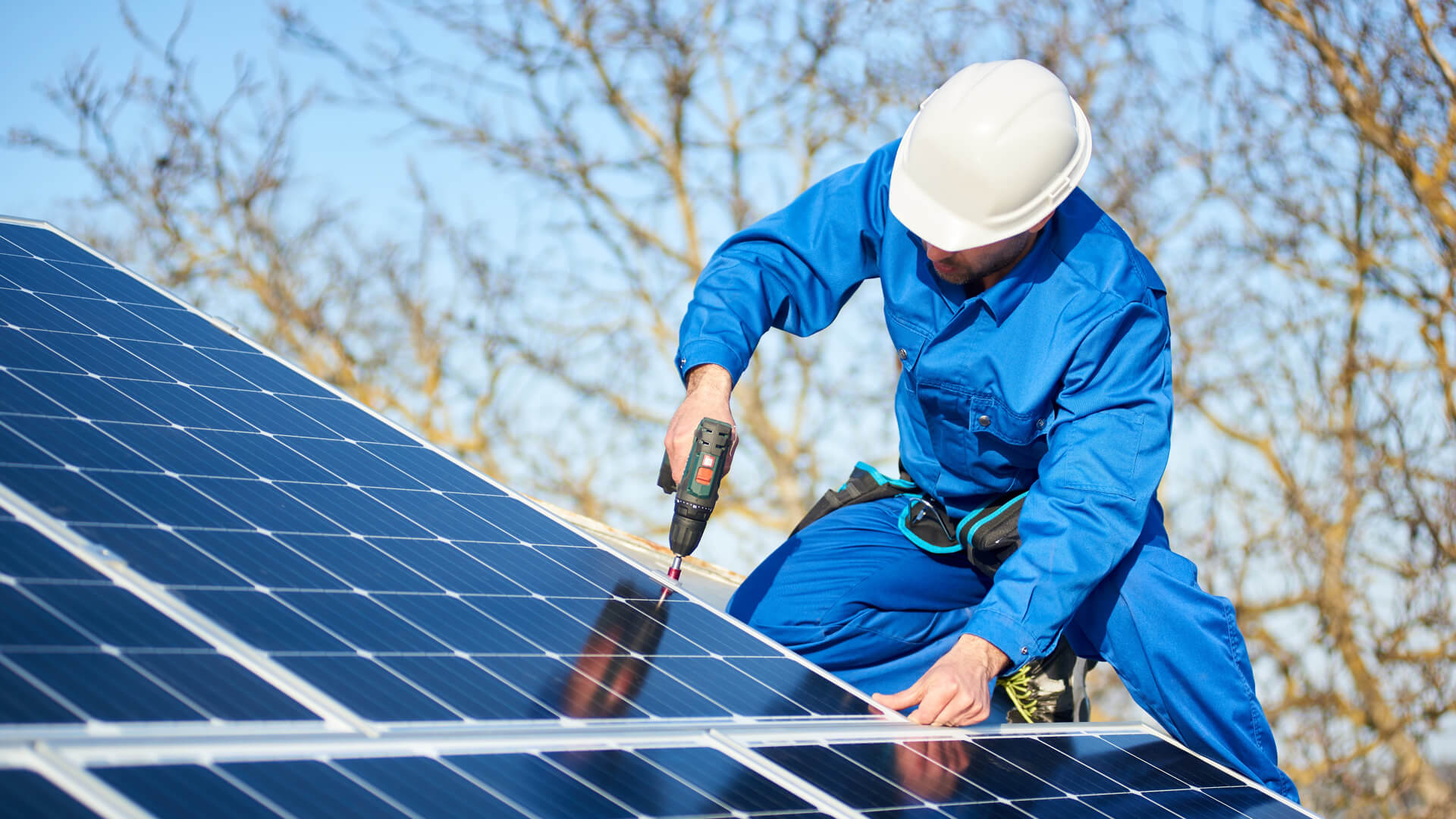
If rooftop solar panels aren't an option for you, there are "community solar" programs that let you rent from nearby farms. The swap could save you tons of money on your energy bill.
Switch to induction

Induction cooktops are faster and easier to control, and they'll save you from the harmful pollution leaked by gas stoves. If you can't renovate your whole kitchen, you can buy a cheap, portable cooktop for less than $100.
Electrify your ride

Whether it's an e-bike, an electric scooter, or that electric car you've been saving for years, maybe it's finally time to make the switch. And thanks to the Inflation Reduction Act, electric cars have never been cheaper.
Give "no-buy" a try
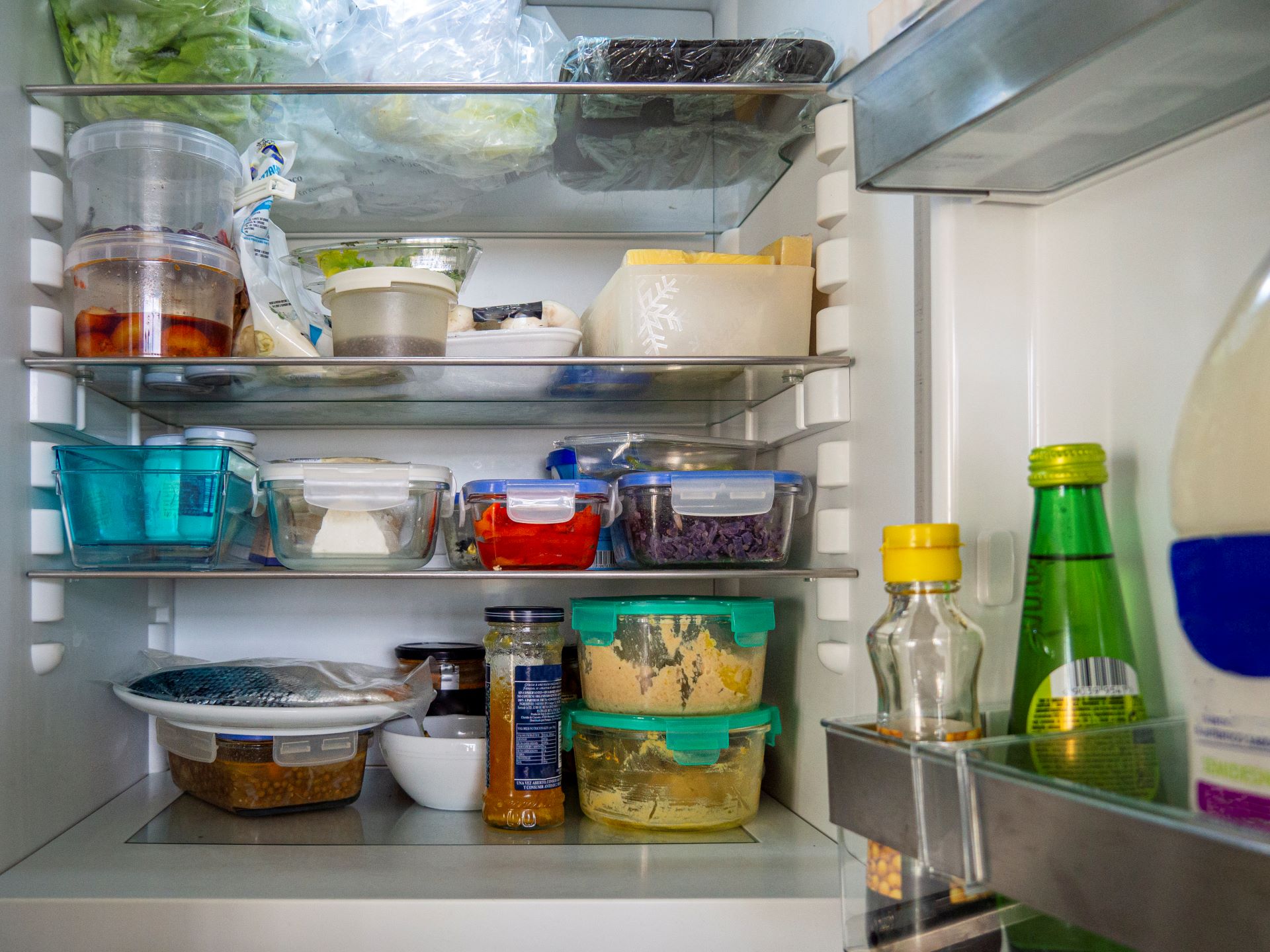
No-buy weeks (also known as low-buy weeks) are weeks where you don't spend money on anything until you've used up all of what you already have. Try it for one week every month and keep tabs on how much money you're saving.
Follow The Cool Down on Instagram and subscribe to our newsletter.
